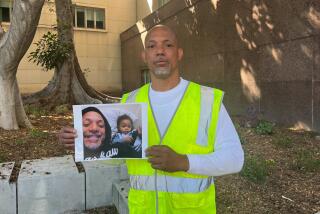Ruling Limits Liability in Overdose Case : Health: Parents who followed pharmacist’s incorrect instructions on infant’s medication cannot sue for emotional distress, state Supreme Court says. Justices are reluctant to encourage more lawsuits.
- Share via
SAN FRANCISCO — A divided California Supreme Court held Thursday that a pharmacy is not liable for the emotional distress caused to parents whose infant was injured because a pharmacist wrote incorrect directions for a prescription drug.
In a 5-2 decision written by Justice Marvin Baxter, the court said allowing parents to sue would have expanded the liability not just of pharmacists, but of any health care provider who directs parents in how to administer prescribed medicine or treatment to a child. As a result, the court said, more lawsuits would be filed and malpractice insurance rates would climb.
The case was brought against Longs Drug Stores after a Longs pharmacy in Modesto wrote directions in October, 1989, for five times the prescribed dosage of the antibiotic Ceclor for a 2-month-old boy with an ear infection.
The infant became lethargic and unresponsive after receiving the overdose for about two days, but he apparently suffered no permanent harm. The baby received $5,000 in damages.
His mother, Barbie Huggins, who administered the incorrect dosage, and her husband also sued Longs for the shock, grief and emotional distress they suffered for inadvertently having over-medicated their firstborn child. The mistake in dosage was discovered after the prescription was transferred to a different drugstore.
A state court of appeal in Fresno held that the parents could recover monetary damages from the pharmacy. The California Medical Assn. and the California Dental Assn., fearing repercussions for dentists and doctors, both urged the state high court to overturn the appeals court decision.
In ruling against the parents, the court said that even if a pediatrician or a pharmacist could foresee that a parent’s unwitting participation in a child’s injury could cause distress, “that foreseeability would not warrant our establishing a new right of recovery for intangible injury.”
Justices Stanley Mosk and Joyce Kennard disagreed in separate dissents.
Kennard argued that a parent who has personally participated in the over-medication of a child suffers enough distress to be considered a victim.
She said it was unlikely that a ruling for the parents would have sparked a dramatic increase in insurance rates for pharmacies because it would have covered only a narrow class. Kennard said the court should have held that parents are entitled to recover damages only in the kind of situations presented in the case.
Mosk chided the majority for its “typical, well-worn anxiety” over expanding liability and increasing medical malpractice insurance costs.
“I fail to see how the imposition of liability here would be any novelty,” he wrote. “A statutory duty to provide accurate instructions was breached, and the persons to whom the instructions were directed seek compensation. They deserve a trial, not a summary denial.”
Patricia Melugin Cousins, the attorney for the parents, said tests performed on the child indicated no long-term damage to his liver or kidneys from the overdose. But she said the parents deserved a chance to collect damages for the distress of being “the unwitting purveyors of harm to their own baby. . . . They were particularly injured by that.”
Cousins noted that a new state law now requires pharmacists to offer counseling to people who pick up a prescription for the first time.
If that law had been in effect in 1989, she said, the pharmacist probably would have noticed the error in discussing the medication with the parents.
Longs’ attorney, Gregory P. Matzen, said any family member who dispensed medication would have been allowed to collect damages if the lower court decision had been upheld.
Matzen, a former pharmacist, said mistakes in directions are not uncommon.
“It happens,” he said. “We are human.”
In a separate decision, a similarly divided court upheld the death sentence of a double murderer despite what the court acknowledged were improper remarks by the prosecutor in arguing for the defendant’s execution. The Oakland prosecutor relied on biblical references to help persuade a jury to sentence Jeffrey Wash to death for killing two women in Livermore in 1984.
More to Read
Sign up for Essential California
The most important California stories and recommendations in your inbox every morning.
You may occasionally receive promotional content from the Los Angeles Times.














